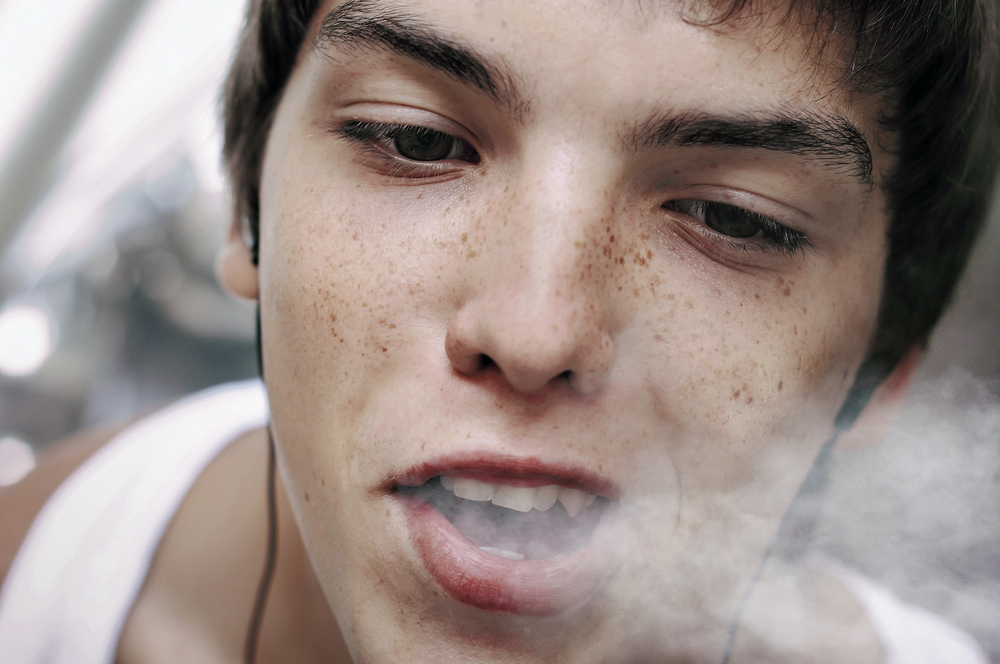A new article published in the Journal of Psychiatric Research finds that cannabis and synthetic cannabinoid use can slow recovery from first episode psychosis.
The use of natural cannabis (NC) was associated with higher levels of dissociation and difficulty processing and describing emotions (alexithymia) compared to non-use. In addition to higher levels of dissociation and alexithymia, synthetic cannabinoid (SC) use was also linked to more severe positive symptoms of psychosis and increased issues with attributing significance to non-significant stimuli (aberrant salience).
The current work, led by Ricci Valerio of San Luigi Gonzaga University Hospital in Italy, also finds that participants who did not use cannabis or synthetic cannabinoids reported worse negative symptoms of psychosis compared to users.
“Across all psychopathological dimensions measured at three time points,” the researchers write, “our longitudinal analysis revealed consistent patterns: non-users showed the most robust improvement over time, natural cannabis users demonstrated intermediate recovery with persistent deficits in emotional processing, while synthetic cannabinoid users exhibited minimal improvement and maintained high levels of psychopathology throughout the observation period. These differential trajectories were particularly evident in positive symptoms, aberrant salience, and alexithymia, suggesting substance-specific effects on recovery processes and treatment response.”
This study adds nuance to the ongoing debate about cannabis use and psychosis, highlighting that synthetic cannabinoids may worsen symptoms and slow recovery more than natural cannabis or abstinence. Amid rising THC potency and a growing industry push to normalize cannabis, researchers continue to find links between heavy or early use and cognitive or psychiatric harms. Yet much of the public discourse overlooks the distinction between types of cannabinoids and their divergent effects. As calls for more rigorous research persist, these findings suggest that not all cannabis use is created equal and that potency, context, and user vulnerability matter.
















I’m sorry but I’m finding this picture unappealing. Is that boy supposed to be a psychotic cannabis user? He just looks angry and stupid, is there a hidden message? Im not sure it’s useful here.
Report comment
He appears to be smiling a little and enjoying himself. I see no anger at all. I’m not sure where the stupid would come into it.
Report comment
Indeed, all cannabis use is NOT created equal, and neither are cannabinoid products, yet much of the literature fails to make nuanced distinctions in either domain. Cannabis effects are not just dose dependent to a marked degree but biphasic, e.g. lower doses are typically angiogenic while higher doses can produce high anxiety. Worth highlighting here is the finding, consistent with prior studies, that cannabinoids may be effective for managing negative symptoms. That point is obscured a bit by the post’s double negative construction those “who did not use cannabis or synthetic cannabinoids reported worse negative symptoms”). Since the negative symptoms of psychosis are both more debilitating to normal function and more difficult to treat than positive symptoms, that’s significant. Qualitative studies of people diagnosed with schizophrenia consistently find that among their motivations for cannabis use are management of negative symptoms such as depression, anxiety, and difficulty socializing. In other words, the relationship between cannabis use and psychosis is not simple or one directional and significantly more research is needed to understand what counts as adaptive and maladaptive use in this context.
Report comment
Thanks for sharing this. It took a while to get into my bed that my edible use was having a net a negative effect on my sleep, anxiety, and ultimately could trigger manic episodes. While the short term effect is great, the long term effect can be pretty severe for some users.
Report comment
So stop smoking pot and get back on your anti depressants/psychotics…..or the system will fall apart..
Report comment
Idk why the potheads in this thread can’t understand how their precious cannabis could actually just be another gimmick for the gov to make money.
Report comment
I use it successfully to treat akathisia. It’s the only way to be able to sit still for more than twenty seconds on the weekends. As far as I have heard, cannabis use does not cause akathisia and tardive dyskenisia like drugs from a doctor.
I have a license from the state to use it. It’s interesting that I don’t need a license to use really strong drugs like fentanyl from a doctor. Go figure.
Report comment
Hi, have you successfully tried other plants or therapies for akathisia? I’m having ah ard time finding information on this subject…
Report comment